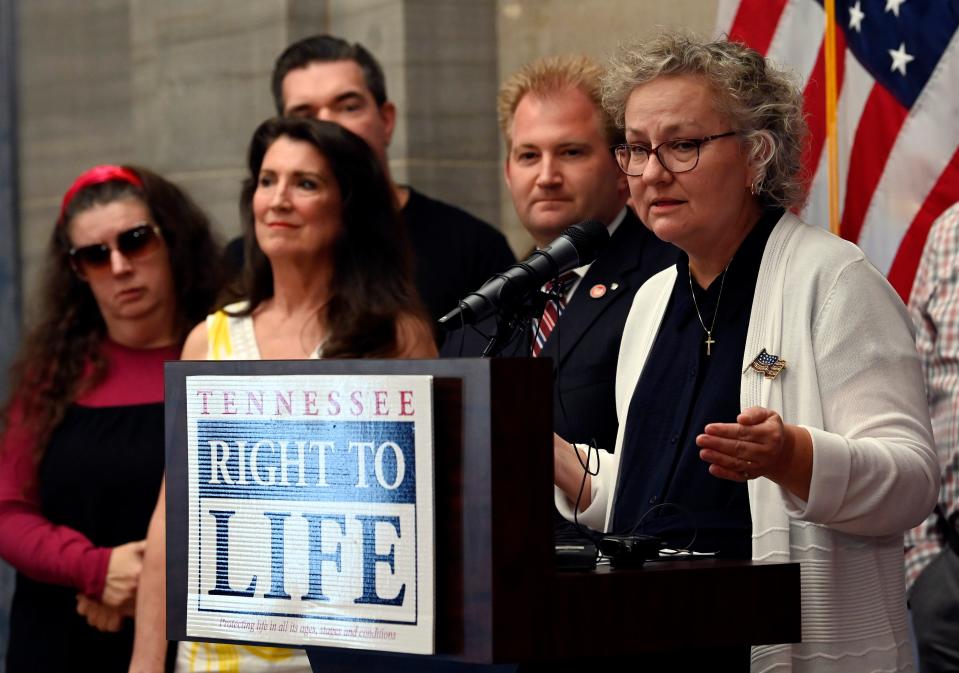With Roe v. Wade overturned, enforcing abortion ban will be the tough part | Opinion
After Chief Justice John Marshall issued a decision upholding the rights of Native Americans in Worcester v. Georgia (1832), President Andrew Jackson purportedly responded, “John Marshall has made his decision, now let him enforce it.” Although the quotation is believed to be apocryphal, the point it emphasizes is highly relevant to the outcome of the Supreme Court’s recent decision in Dobbs v. Jackson Women’s Health Organization, overturning Roe v. Wade (1973) and returning the issue of abortion laws to the states.
In the wake of the Dobbs decision, many states in the South and Midwest will outlaw abortion (indeed, some have already done so); many in the East and West will permit them; and other states will become major battlegrounds over such legislation. One can only hope that the political battles will be more moderate than those that led to “bleeding Kansas,” where pro- and anti-slavery forces battled it out on the eve of the U.S. Civil War. Prior to the war, abolitionists in free states provided an underground railroad for escaped slaves, and public officials in free states resisted aiding in slave returns.

Federalism will lead to a patchwork of regulations, with women with the time and money to do so traveling from anti- to pro-abortion rights states to procure the procedure. Prosecutors with strong constituencies within liberal cities in pro-abortion rights states, some of whom have refused to enforce clampdowns on undocumented immigrants, have already announced that they will exercise their discretion in refusing to indict those who provide abortions. Even prosecutors who bring lawsuits may encounter juries that will side with women in desperate circumstances.
Hear more Tennessee voices: Get the weekly opinion newsletter for insightful and thought-provoking columns.
Federal officials will make their own choices within areas under national jurisdiction, undoubtedly adding another level of complexity. The military may enact rules for its bases. Congress might use its control over interstate commerce to permit the interstate transit of medical abortion pills.
Criminalizing abortion might not only fail to protect some unborn children but might also lead women to procure it illegally at the hands of untrained personnel or in unsanitary surroundings. Pro-abortion rights advocates carry placards showing coat hangers to remind observers of how primitive desperate medicine can be.
Anti-abortion rights states have to decide whether they intend to prosecute women seeking abortions, medical personnel who provide them, those who aid them or all of them. Texas has laid out plans resembling vigilante justice in totalitarian nations by encouraging citizen informants to come forward with information, lured by the prospect of monetary bounties.
Overflowing prisons demonstrate that individuals often disobey even relatively uncontroversial laws. Although it initially decreased alcohol consumption, the 18th Amendment led to the growth of organized crime by providing an avenue for those willing to smuggle and sell alcohol to a parched public before Prohibition was repealed. Although laws prohibiting de jure discrimination appear over time to have reduced discrimination, laws criminalizing drugs have been notoriously difficult to enforce, and some states and localities have largely thrown in the towel, especially with respect to marijuana.
The theory of civil disobedience might inspire individuals who believe firmly enough in the right to choose abortion to facilitate the procedures for others and accept the consequences.
Both abortion and alternate health care providers have already been objects of violence and intimidation, and Justice Brett Kavanaugh appears to have been the target of a would-be assassin.

Your state. Your stories. Support more reporting like this.
A subscription gives you unlimited access to stories across Tennessee that make a difference in your life and the lives of those around you. Click here to become a subscriber.
Despite Dobbs, some individuals will continue to regard even late-term abortions as a sacrament connected to a near-absolute right to one’s body, while others will equate even early abortions in cases of rape and incest as murder. In such polarized circumstances, the battle for hearts and minds may ultimately prove to be more consequential for abortion practices than the votes that anti-abortion rights forces secured on the Supreme Court.
Dr. John R. Vile is a professor of political science and dean of the University Honors College at Middle Tennessee State University and author of numerous books, including "Essential Supreme Court Decisions."
This article originally appeared on Nashville Tennessean: With Roe v. Wade overturned, enforcing abortion ban will be the tough part

